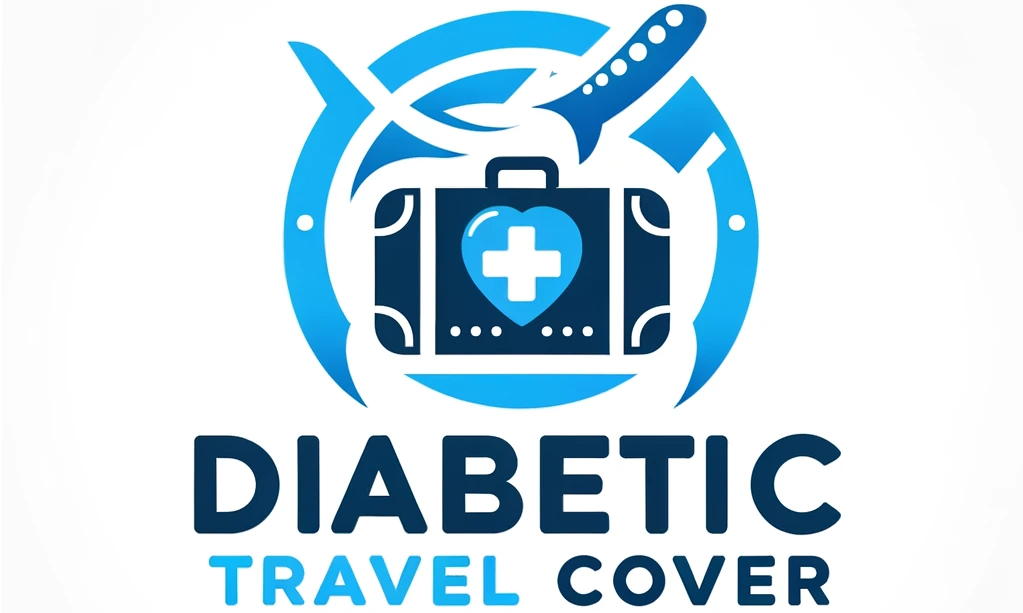If you’ve ever wondered whether your insurance will cover Mounjaro if you don’t have diabetes, you’re not alone. Insurance coverage can be confusing, especially when it comes to specialized medical treatments. In this article, we’ll explore the question of insurance coverage for Mounjaro and provide you with some important information to help you navigate this issue. So, let’s dive in and find out what your insurance may or may not cover when it comes to this innovative treatment.

Understanding Insurance Coverage for Mounjaro
What is Mounjaro?
Mounjaro refers to an individual seeking insurance coverage for various medical needs. Whether you are looking for health insurance, disability insurance, or travel insurance, understanding the coverage options available to you is crucial. Insurance coverage acts as a safety net, providing financial protection in case of unexpected medical expenses or emergencies. However, it’s essential to know that the extent of coverage available can vary based on several factors.
Types of Insurance Coverage
When it comes to insurance coverage, there are several types to consider. Health insurance is designed to cover medical expenses, including doctor visits, hospital stays, and medications. Disability insurance provides income replacement if you are unable to work due to illness or injury. Travel insurance protects you from unexpected costs while traveling, such as medical emergencies or trip cancellations. Lastly, specific disease insurance is tailored to cover expenses related to a specific medical condition, such as cancer or heart disease.
Factors That Affect Insurance Coverage
Understanding the factors that can impact insurance coverage is crucial in determining the extent to which you will be protected. Some key factors include age, medical history, and the specific insurance provider you choose. Additionally, policy terms and conditions can significantly influence coverage limitations. By taking these factors into account, you can make informed decisions about the insurance coverage that best suits your needs.
Exploring Insurance Coverage Without Diabetes
Importance of Diabetes
Although diabetes might not be a concern for everyone seeking insurance coverage, understanding how it can impact your policy is essential. Diabetes is a chronic condition that affects how your body processes glucose, leading to high blood sugar levels. Insurance providers may consider diabetes as a pre-existing condition, which can affect the types of coverage available to you, the premiums you pay, and the limitations on coverage.
Exclusions for Non-Diabetic Individuals
If you do not have diabetes, it is important to know that insurance policies may still have exclusions or limitations concerning other medical conditions. This means that while some aspects of your health might be covered, others may not. It is crucial to review the terms and conditions of your policy to understand any potential exclusions that may impact your coverage.
Other Medical Conditions That May Impact Coverage
Even if you do not have diabetes, there are other medical conditions that could affect your insurance coverage. Conditions such as heart disease, cancer, or mental health disorders might have specific coverage limitations or exclusions within your policy. It is crucial to review these conditions thoroughly and seek clarification from your insurance provider to ensure you understand the extent of your coverage.
Types of Insurance Policies
Health Insurance
Health insurance is a type of coverage that focuses on medical expenses. This can include preventative care, hospital stays, surgeries, and prescription medications. Health insurance plans can vary in coverage levels, premiums, and the network of healthcare providers available to you. Understanding the specifics of your health insurance plan is essential in maximizing your coverage.
Disability Insurance
Disability insurance is designed to provide financial protection in case you are unable to work due to illness or injury. It can offer a portion of your regular income while you are unable to work, ensuring that you can cover your daily expenses even without a steady source of income. Disability insurance policies can vary in terms of coverage duration, waiting periods, and the conditions covered. Reviewing the details of your disability insurance policy is vital to understanding how it can protect you financially.
Travel Insurance
Travel insurance is crucial when embarking on domestic or international trips. It provides coverage for medical emergencies, trip cancellations, lost luggage, and other unforeseen circumstances that may interrupt or impact your travel plans. Travel insurance policies can vary in coverage limits and exclusions, so carefully reviewing the terms and conditions is essential in ensuring you have the coverage you need while traveling.
Specific Disease Insurance
Specific disease insurance is a specialized form of coverage that focuses on a particular medical condition, such as cancer or heart disease. These policies provide financial protection specifically related to the diagnosed disease. Coverage can include medical treatments, hospital stays, and other related expenses. Specific disease insurance can be valuable for those with a high risk of developing certain conditions or who have already been diagnosed. It is essential to thoroughly understand the coverage limitations and exclusions of these policies before selecting one.
Coverage Limitations and Exclusions
Pre-Existing Conditions
One common limitation in insurance coverage is pre-existing conditions. These are medical conditions that you have been diagnosed with before obtaining the insurance policy. Insurance providers may exclude coverage for pre-existing conditions for a certain period of time, often referred to as a waiting period. Understanding how pre-existing conditions are addressed in your policy is crucial in managing your coverage expectations.
Waiting Periods
Waiting periods are stipulated periods of time after obtaining an insurance policy during which coverage for certain medical conditions may be excluded. For example, if you have a pre-existing condition like diabetes, your health insurance provider may enforce a waiting period before covering expenses related to diabetes treatments. It is important to understand the waiting periods within your policy to ensure you receive the coverage you need when you need it.
Maximum Benefit Limits
Insurance policies often have maximum benefit limits, which are the maximum amounts the insurance company will cover for specific medical services or treatments. These limits can vary based on the type of coverage and the specific policy terms. Being aware of these maximum benefit limits ensures that you understand how much coverage you have for various medical expenses and treatments.
Alternative Treatment Exclusions
Certain insurance policies may exclude coverage for alternative treatments or therapies. These therapies, such as acupuncture or naturopathy, are not typically covered by conventional insurance plans. If you rely on or prefer alternative treatments, it is important to review your policy and explore other insurance options that may provide coverage for these treatments.
Specific Policy Exclusions
In addition to the general limitations mentioned, insurance policies may also have specific exclusions unique to each provider and plan. These exclusions can vary greatly, so it is crucial to carefully review all the terms and conditions of your insurance policy. Understanding the specific exclusions ensures that you are aware of any limitations or potential gaps in your coverage.

Factors That May Influence Coverage
Age
Age can play a significant role in determining insurance coverage. Premiums for healthcare, disability, and travel insurance may increase as you get older. Some insurance policies may also have age restrictions or exclusions, particularly for specific disease coverage. Understanding how age impacts your coverage options is crucial in selecting the most suitable insurance policy for your needs.
Medical History
Your medical history is another vital factor that insurance providers consider when determining coverage. If you have a history of significant medical conditions, such as heart disease or cancer, it may impact the coverage available to you. Pre-existing conditions can result in waiting periods or exclusions. Providing accurate and detailed information about your medical history to your insurance provider ensures that you receive coverage appropriate for your individual needs.
Insurance Provider
Different insurance providers may offer varying coverage options and have different terms and conditions. Some providers may specialize in specific disease coverage, while others focus on broader health insurance. Researching and comparing different insurance providers allows you to identify the one that aligns with your specific needs and priorities.
Policy Terms and Conditions
The terms and conditions of your insurance policy play a significant role in determining the extent of your coverage. Familiarize yourself with the details of your policy, including coverage limits, waiting periods, and any specific exclusions. Understanding the policy terms and conditions ensures that you are well-informed about the limitations and inclusions of your coverage.
Seeking Clarification from Insurance Provider
Contacting Your Insurance Company
When in doubt about your insurance coverage, it is essential to contact your insurance company directly. The customer service department can address any concerns or questions you may have regarding your policy. They can provide clarification on coverage details, exclusions, or any changes in your policy terms.
Questions to Ask
When reaching out to your insurance provider, consider asking the following questions:
- What specific medical conditions are covered under my policy?
- Are there any waiting periods or exclusions for pre-existing conditions?
- How much coverage is provided for different medical treatments or procedures?
- Are alternative treatments or therapies covered?
- Are there any specific exclusions I should be aware of?
Asking these questions will ensure you have a clear understanding of your insurance coverage and can make informed decisions about your healthcare needs.
Requesting Written Confirmation
To avoid any misunderstandings in the future, it is recommended to request written confirmation of the details discussed with your insurance provider. This can help provide clarity and serve as a reference point if there are any discrepancies or changes to your policy.
Reviewing Policy Updates
Insurance policies can undergo updates or changes periodically. It is essential to review any updates sent by your insurance provider to ensure you are aware of any modifications to your coverage. Staying informed about policy updates helps you make necessary adjustments to ensure your coverage aligns with your current needs.

Alternative Options for Coverage
Medicaid or Medicare
Medicaid and Medicare are government-sponsored insurance programs that provide coverage to eligible individuals. Medicaid is typically available to those with limited income, while Medicare is primarily for individuals aged 65 and older. Both programs offer different levels of coverage and can be valuable options for those seeking insurance coverage.
Employer-Sponsored Insurance
Many employers offer health insurance coverage as part of their employee benefits package. Employer-sponsored insurance can provide comprehensive coverage at a lower cost compared to individual plans. Reviewing and understanding the coverage options available through your employer is important in maximizing your insurance benefits.
Private Health Savings Accounts
Health savings accounts (HSAs) are individual savings accounts specifically designated for healthcare expenses. HSAs are typically paired with high-deductible health insurance plans and offer tax advantages while allowing you to save money for future medical expenses. Utilizing a private health savings account can be an alternative option to traditional insurance coverage.
Supplemental Insurance
Supplemental insurance is designed to complement existing insurance coverage by providing additional financial protection. These policies can be purchased separately to cover specific medical conditions, accidents, or disabilities. Supplemental insurance can help fill gaps in coverage and provide extra peace of mind.
Understanding Insurance Terminology
Premiums
Premiums refer to the amount you pay to maintain your insurance coverage. This is usually paid on a monthly or annual basis. The premium amount can vary depending on factors such as age, pre-existing conditions, and the level of coverage you choose. Understanding your premium obligations ensures that you can maintain your insurance coverage without any interruptions.
Deductibles
Deductibles are the predetermined amount you must pay out of pocket before your insurance coverage starts to contribute towards eligible expenses. For example, if your health insurance policy has a $500 deductible, you would need to pay that amount first before the insurance provider covers any costs. Understanding your deductible is important in determining your financial responsibility for medical expenses.
Co-pays
Co-pays are a fixed amount you are required to pay at the time of receiving a specific medical service. For example, your health insurance policy might require a $25 co-pay for each doctor’s visit. Co-pays can vary depending on the type of service or provider. Understanding co-pays helps you anticipate the out-of-pocket expenses you may need to cover for specific medical treatments or visits.
Out-of-Pocket Expenses
Out-of-pocket expenses refer to the costs you are responsible for paying directly, beyond premiums or deductibles. These costs can include co-pays, coinsurance, and any services or treatments not covered by your insurance policy. Understanding your out-of-pocket expenses allows you to effectively budget for medical costs and plan accordingly.

Tips for Maximizing Insurance Coverage
Understanding Policy Terms and Conditions
To maximize your insurance coverage, it is crucial to thoroughly understand the terms and conditions of your policy. Reviewing your policy documents, including any updates or changes, ensures that you are aware of your coverage limitations and inclusions. This knowledge can help you make informed decisions about your healthcare needs.
Maintaining Good Health
Maintaining good health and practicing preventive care can help minimize the need for extensive medical treatments or interventions. Regular check-ups, healthy lifestyle choices, and following the advice of your healthcare professionals can contribute to overall well-being and potentially decrease the need for insurance claims.
Regularly Updating Policy Information
To ensure that your insurance coverage remains accurate and relevant, it is important to regularly update your policy information. Informing your insurance provider of any changes in health conditions, employment status, or personal details helps ensure that your coverage aligns with your current needs.
Exploring Different Insurance Providers
Comparing different insurance providers can help you identify the one that offers the best coverage options for your needs. By understanding the policies and benefits offered by various providers, you can select the coverage that aligns with your priorities and budget.
Conclusion
Understanding insurance coverage for Mounjaro, whether they have diabetes or not, is essential to ensure adequate protection in the face of unexpected medical expenses. By exploring the different types of insurance coverage available, considering factors that influence coverage, seeking clarification from insurance providers, and exploring alternative options, you can make informed decisions and maximize the benefits of insurance coverage. Remember to review and understand policy terms and conditions, maintain good health, regularly update policy information, and explore different insurance providers to make the most of your coverage. With the right knowledge and proactive approach, you can navigate the complexities of insurance coverage to provide you and your loved ones with the financial protection you need.


